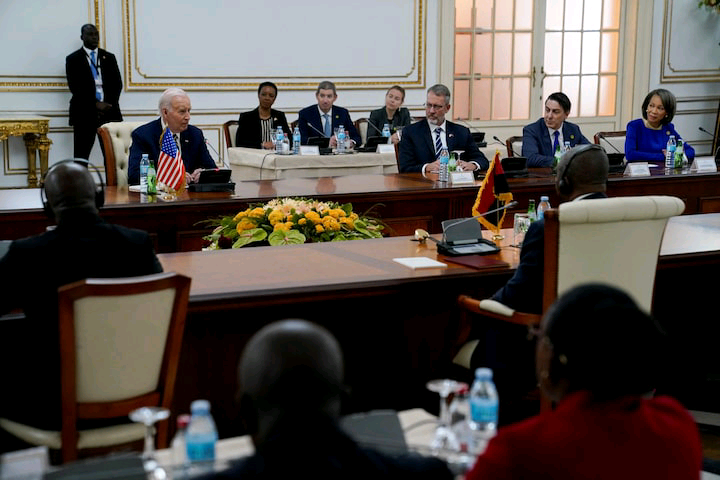By: Chioma Madonna Ndukwu
During his last trip to sub-Saharan Africa as President, Joe Biden visited Angola on December 3, 2024, where he reaffirmed America’s commitment to long-term engagement with Africa. Speaking to Angolan President João Lourenço, Biden emphasized that the U.S. was “all in on Africa,” focusing on mutual collaboration and recognizing the continent’s need for tailored solutions, particularly in international debt financing.
Biden’s visit also included discussions on strengthening trade, defense, and investment ties. Notably, Biden highlighted the U.S.-backed Lobito Corridor railway project, aimed at facilitating mineral exports from the Democratic Republic of Congo and Zambia. “We’re prepared to hear your answers to the needs you have,” Biden stated, acknowledging Africa’s growing role in global geopolitics.
The president’s visit was also a reflection on the painful legacy of the transatlantic slave trade, with Biden touring Angola’s National Museum of Slavery, which commemorates the millions of Angolans forcibly transported to the Americas.
While Biden’s “all in” message shows America’s intent to invest more in Africa, his trip comes amid growing influence from China and Russia in the region, raising questions about the U.S.’s ability to reclaim its role as Africa’s top partner.
Biden’s visit underscores the U.S. desire to strengthen its ties with Africa, but the real test will be whether this engagement translates into sustained, meaningful support beyond high-profile visits. As China and Russia expand their presence, the U.S. must act swiftly to meet Africa’s evolving needs, focusing not only on infrastructure but on addressing challenges like debt and security.


